Baked White Mac and Cheese
Baked white mac and cheese is so creamy and delicious without added eggs or a long list of ingredients. Use your favorite white cheeses and experiment with flavors. Everything from parmesan to sharp cheddar can shine in this crowd pleasing comfort classic.
Jump to Recipe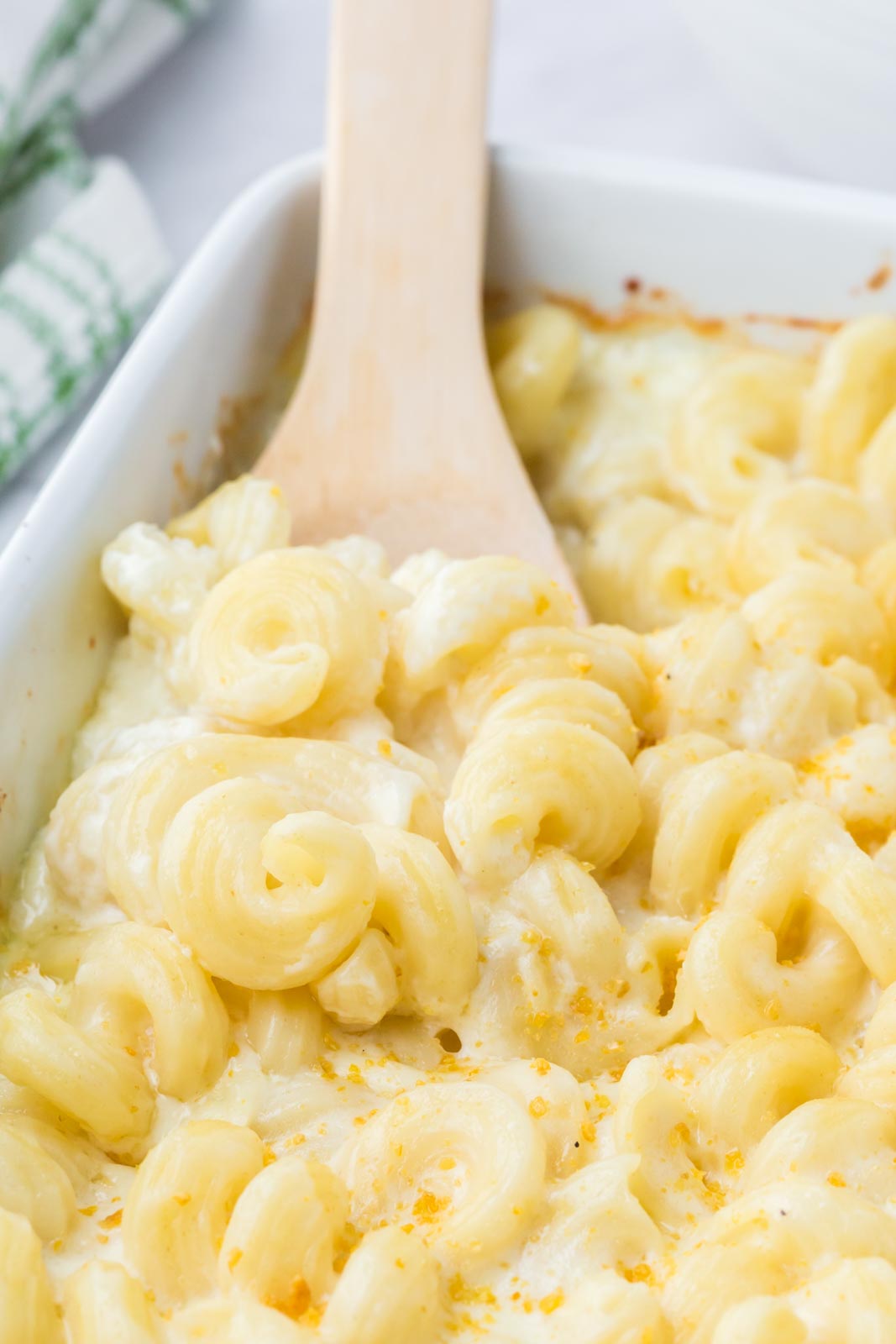
What makes a baked white mac and cheese?
Baked white mac and cheese is made white (as opposed to the more typical yellow) due to the color of the cheese/s in the sauce. White. There are many different white cheeses to choose from. Which ones are best?
When making mac and cheese, it is important to select one cheese that melts well as well as another cheese that adds flavor. I’ll address both.
- Melting cheese. The melting cheese allows you to achieve a rich, creamy, smooth sauce (as opposed to a stringy one). I have been loving Gruyere, mozzarella, and Fontina for this purpose.
- Flavor cheese. In addition to the melting cheese, you want to use a cheese that will add some spunk to the sauce. I like using gorgonzola, pepper jack, and/or sharp white cheddar in white mac and cheese.
Check out my post on the 18 Secrets to the Richest, Creamiest Mac and Cheese. It has some great suggestions for luscious melting cheeses and spunky, flavorful cheeses.
Can this mac and cheese be made gluten-free?
100% yes. Just pick out your favorite gluten-free pasta. I like Barilla or Jovial but the choice is yours.
For the sauce, use your favorite 1:1 gluten-free flour instead of all-purpose flour. The results are shockingly similar to the gluten-full version. Explore this gluten free baked mac and cheese classic recipe also.
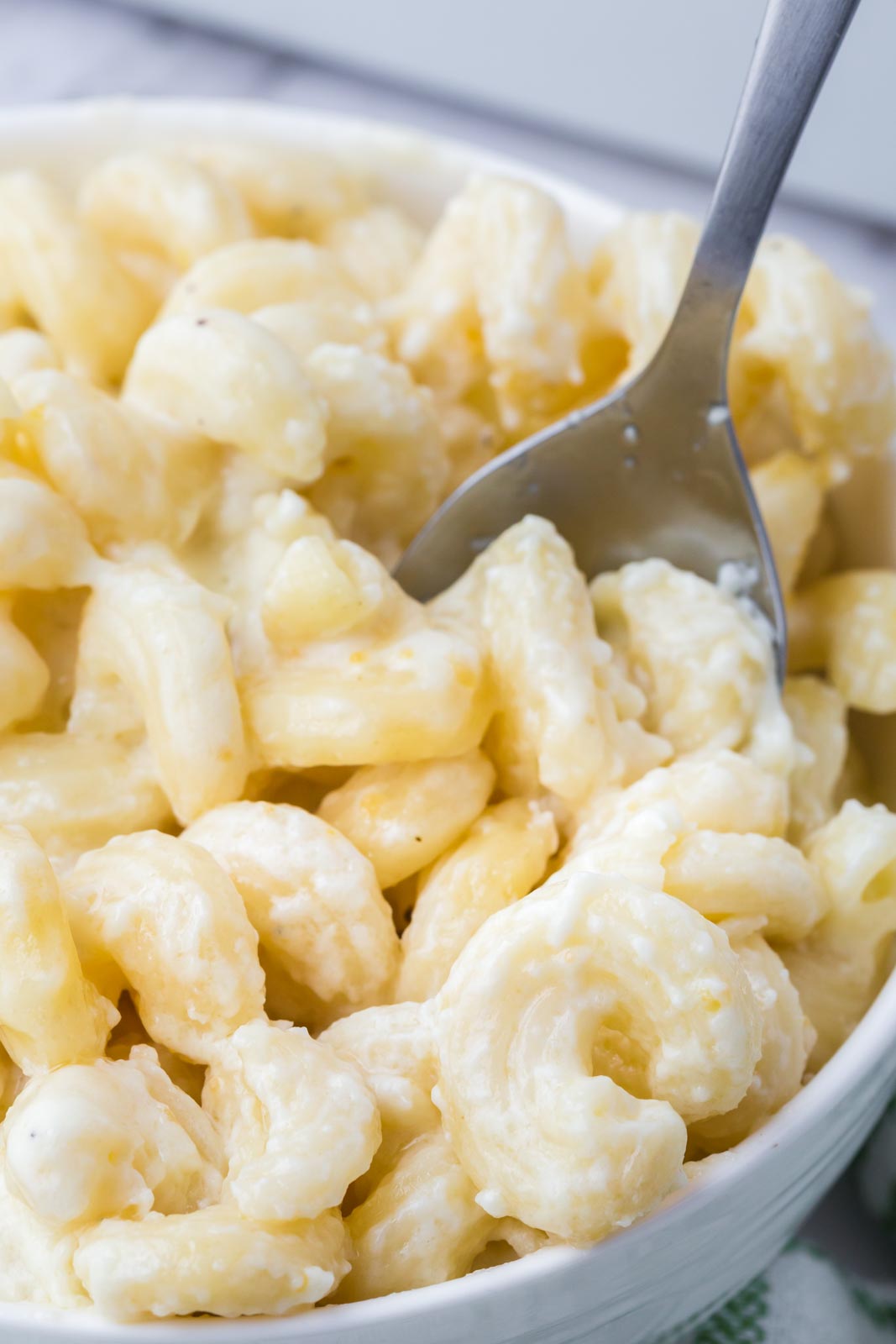
Can I use almond or non-dairy milk in this recipe?
I haven’t tried it but I have heard from many of my readers that the outcome is delicious. I recommend using unsweetened, full-fat dairy-free milk or nut milk.
Here’s what you’ll need.
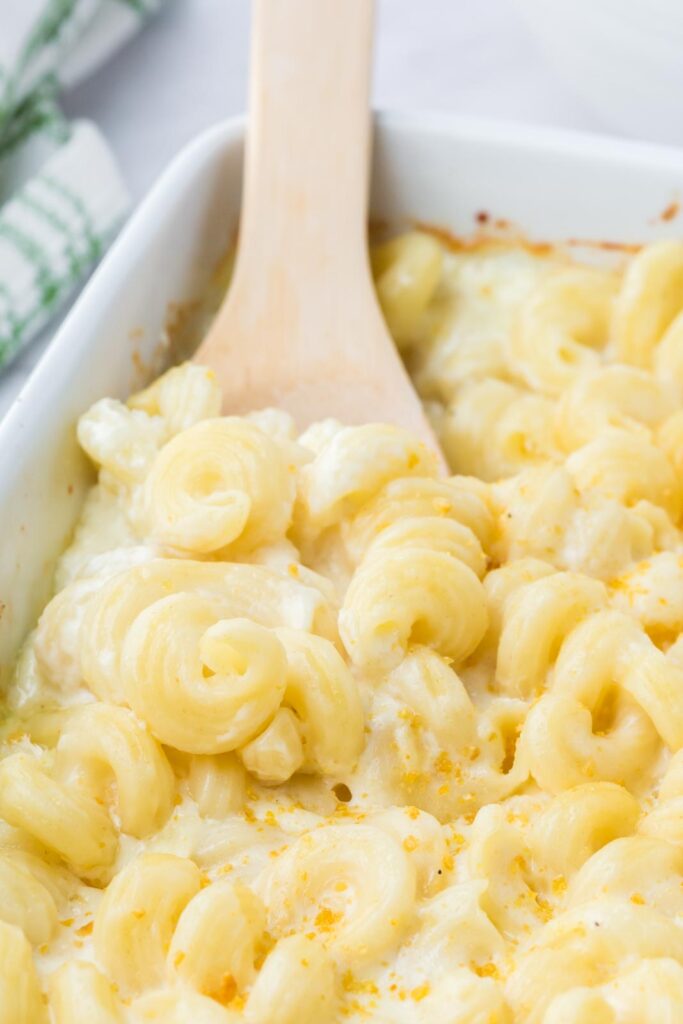
Can I add meat like chicken, shrimp or beef? When and how?
You can! Just stir it in once the sauce has thickened and the cheese has melted. Your meats need to be pre cooked so brown ground beef separately first, or toss in leftover shredded chicken, pulled pork or steamed/grilled shrimp. My favorites are seared steak or chicken and grilled shrimp.
Tips for a creamy sauce and best flavor
We all know that the best mac and cheese is smooth, creamy, and bursting with flavor. Here are some pro tips on how to get there.
- Get the roux right. Add the flour to the melted butter and cook for one whole minute, whisking constantly. This not only helps you achieve the right texture for the sauce but it also brings a lovely richness to the dish.
- Whisk. A lot. As you add the milk to the butter and flour, it is important to do so slowly over medium-low heat (you don’t want to boil the milk) and to whisk constantly. If you forget to whisk, the sauce may split and become grainy. This won’t affect the flavor, but the finished product will look strange and have a funny texture.
- Taste. Before popping the mac and cheese in the oven, give it a taste and adjust your seasoning. Add more salt or vinegar if needed to balance out the richness.
- Play with cheese. Struggling with bland mac and cheese? Select a bolder cheese to accompany your melting cheese. Have a look at the 18 Secrets to the Richest, Creamiest Mac and Cheese for some inspiration. A super sharp cheddar and real parmesan is always my favorite though!
Handy tip: Keep that sauce smooth
Cheese sauces can get gluey and thick if you use bagged pre shredded cheese. Bagged cheese contains anti caking agents that prevent melting. Instead buy your cheese for this recipe in a block or at the deli and grate it up yourself.
Can this recipe be doubled or tripled?
Oh yeah. Make as much as you’d like. This is the perfect recipe to feed a crowd.
After the white mac and cheese has cooled completely, cover it in plastic wrap or seal it in an airtight container and store it in the fridge. It should be good there for up to 3 days.
How to make white mac and cheese
In a sauce pan melt butter and sautee garlic. Add flour and cook 30 seconds until no dry flour remains and the mixture looks pasty.
Add milk, salt, and pepper and cook until the mixture coats the back of a spoon. Add in grated cheese and stir off the heat to melt.
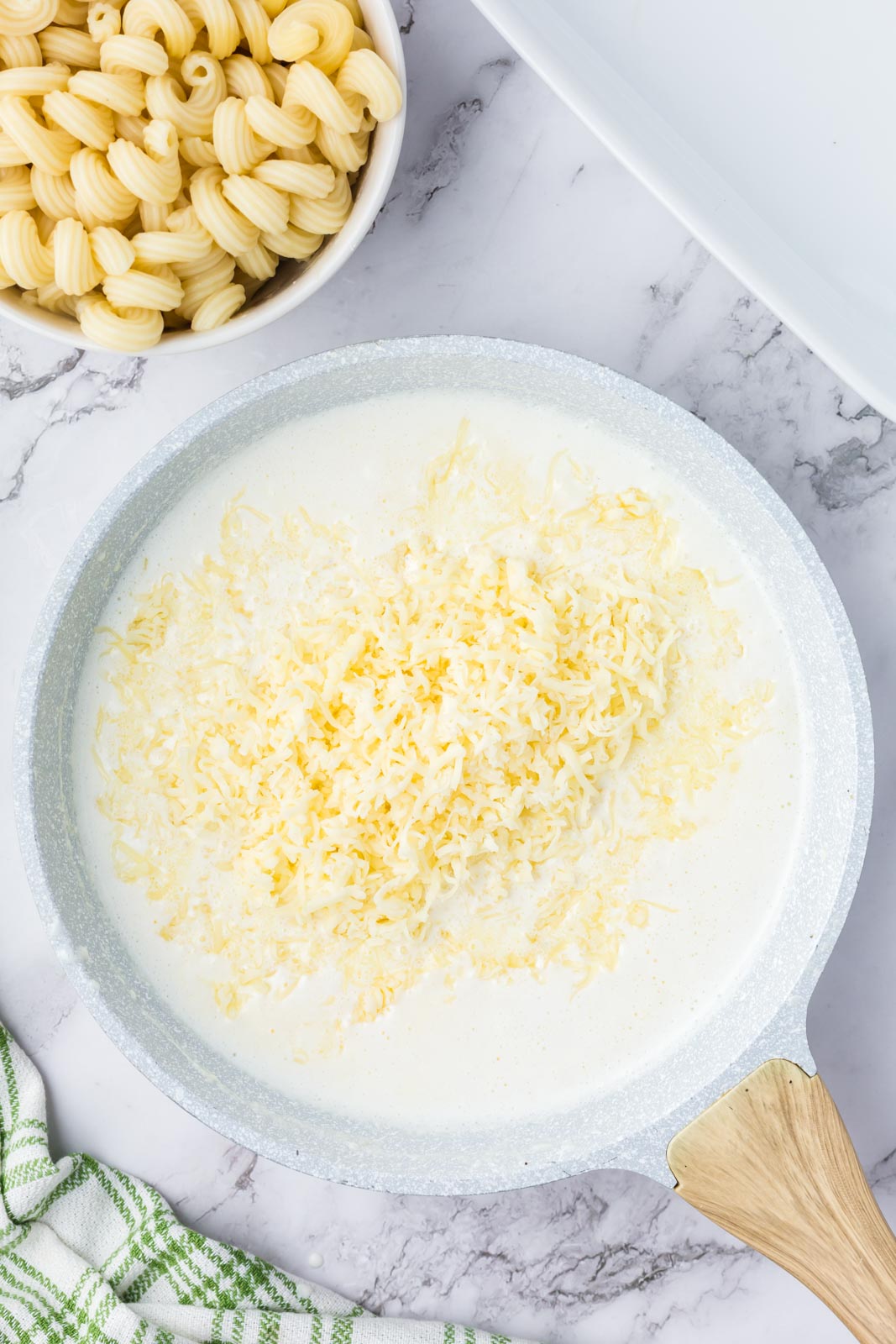
Stir in cooked pasta of your choice. If you are using a large noodle like the cavatappi seen here, make a little extra. Smaller pastas will be fine as the recipe instructs.
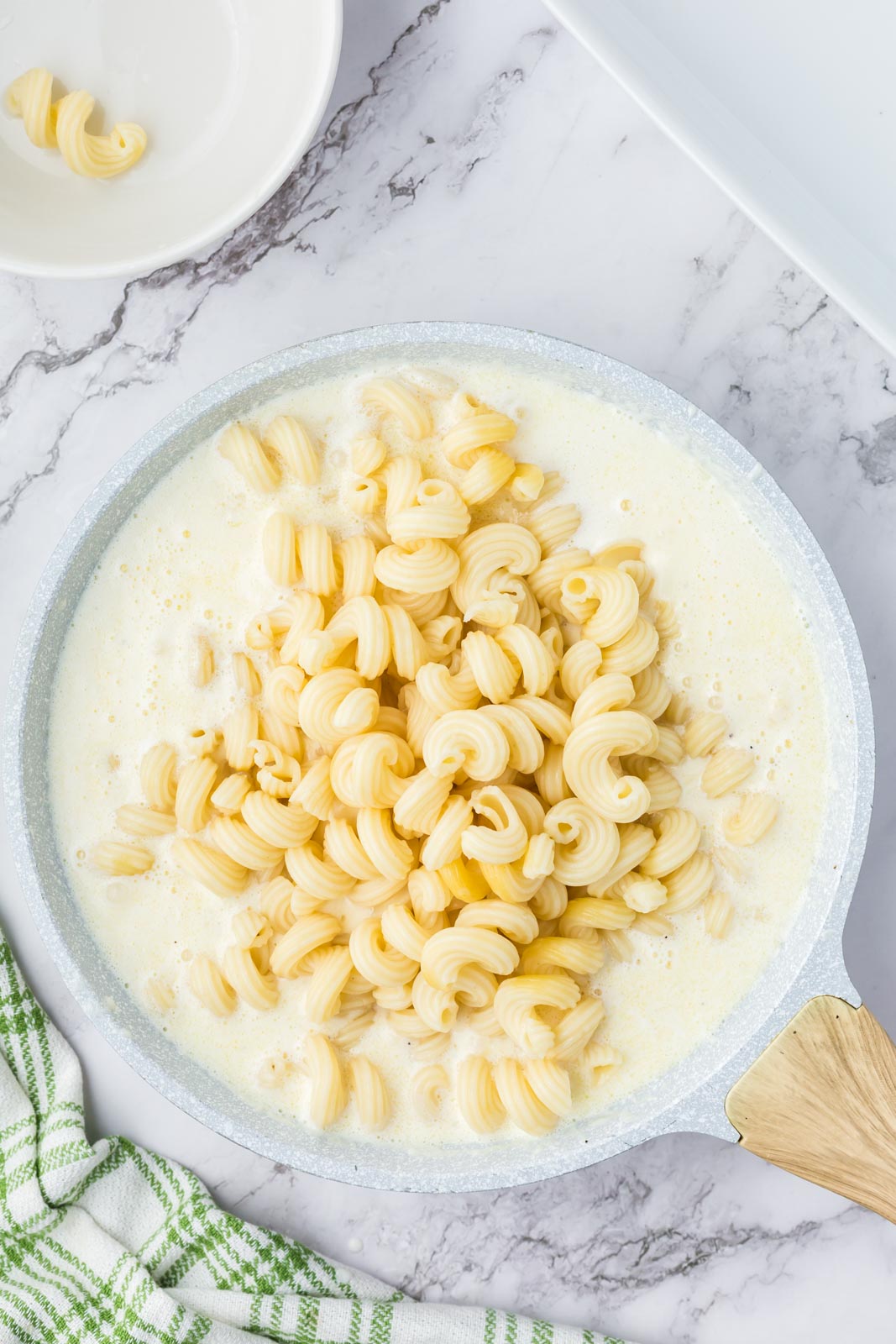
Stir the pasta in well. This is a good time to taste the pasta and sauce and adjust your seasonings as needed.
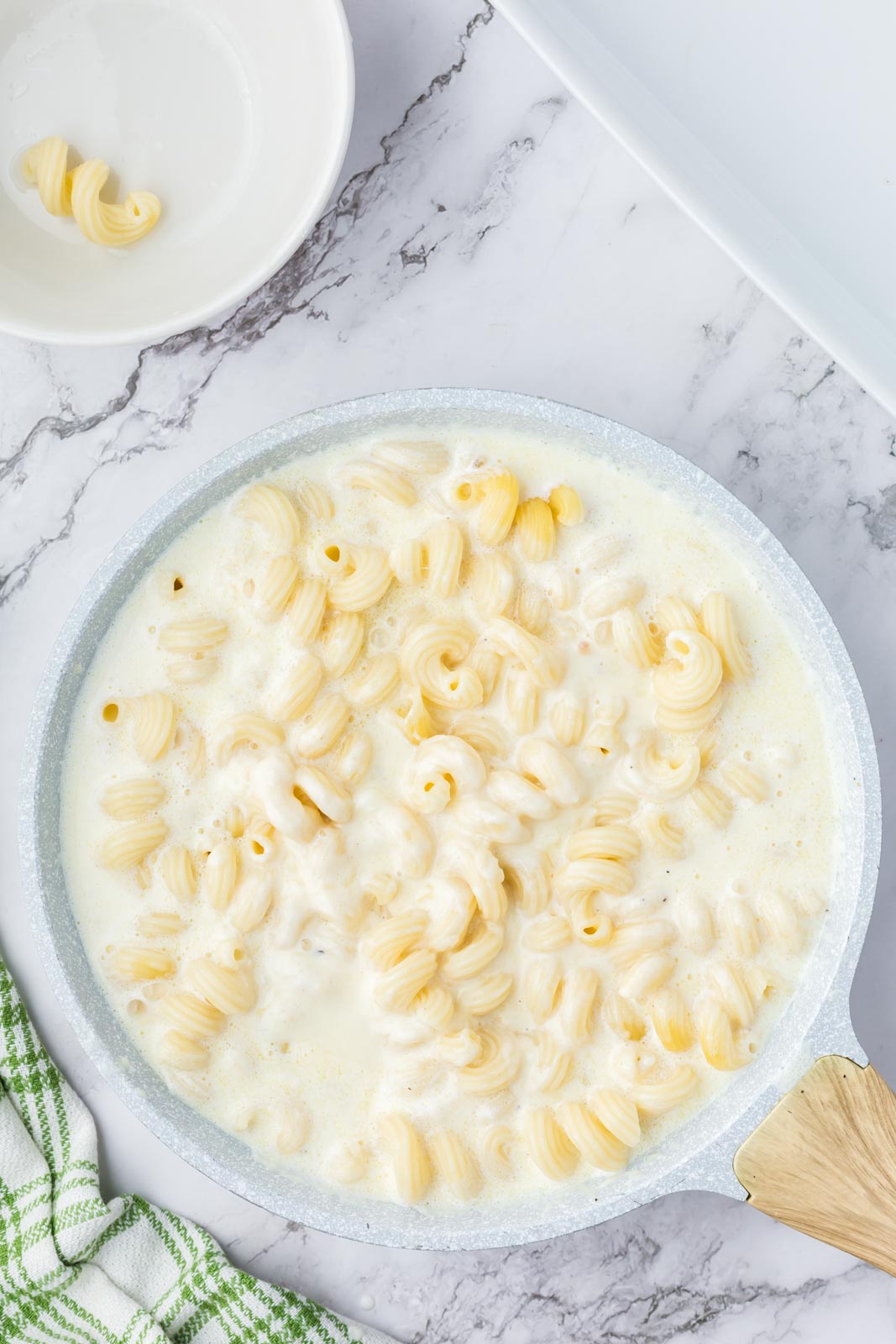
If your skillet is not oven safe, transfer your pasta to a 9×13 baking dish to bake. You can also use an 8×8 but the dish will be much thicker.
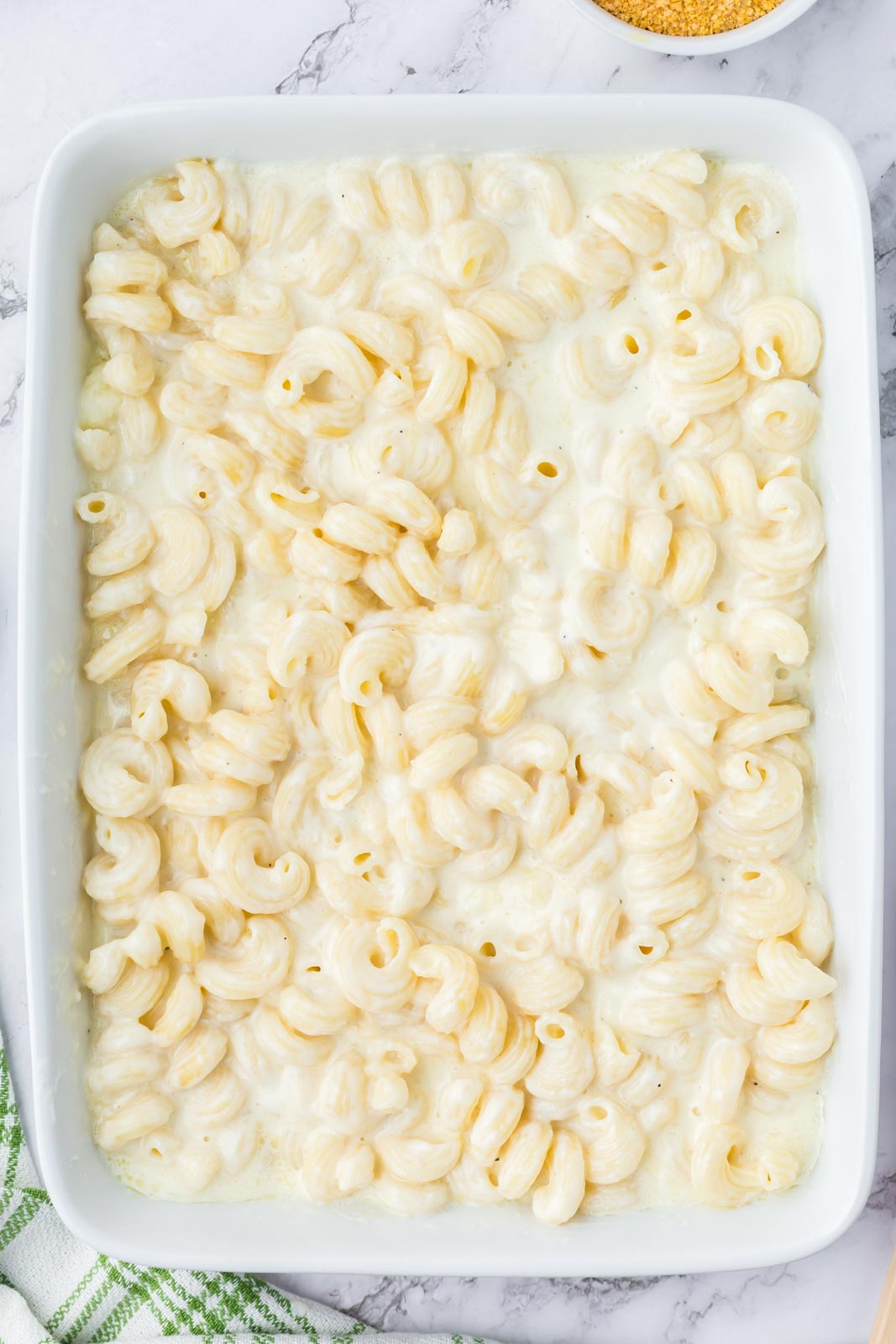
Can baked white mac and cheese be made ahead?
Yes. Before baking allow the mac and cheese to cool to room temperature then seal it in an airtight container and store it in the refrigerator for up to 2 days.
I suggest placing a film of plastic wrap directly on top of the cooled white cheddar mac and cheese before closing the container. This will help prevent a skin from forming. You can also refrigerate it in the skillet it was made in. Just cover it well.
When you are ready to enjoy, stir a little milk into the mac and cheese before transferring it to a casserole dish, you can sprinkle on any bread crumbs or crushed crackers at this point then bake.
Can this mac and cheese be frozen?
Honestly, I wouldn’t freeze this dish. It just doesn’t thaw well. The pasta turns out mushy and the sauce develops a strange texture.
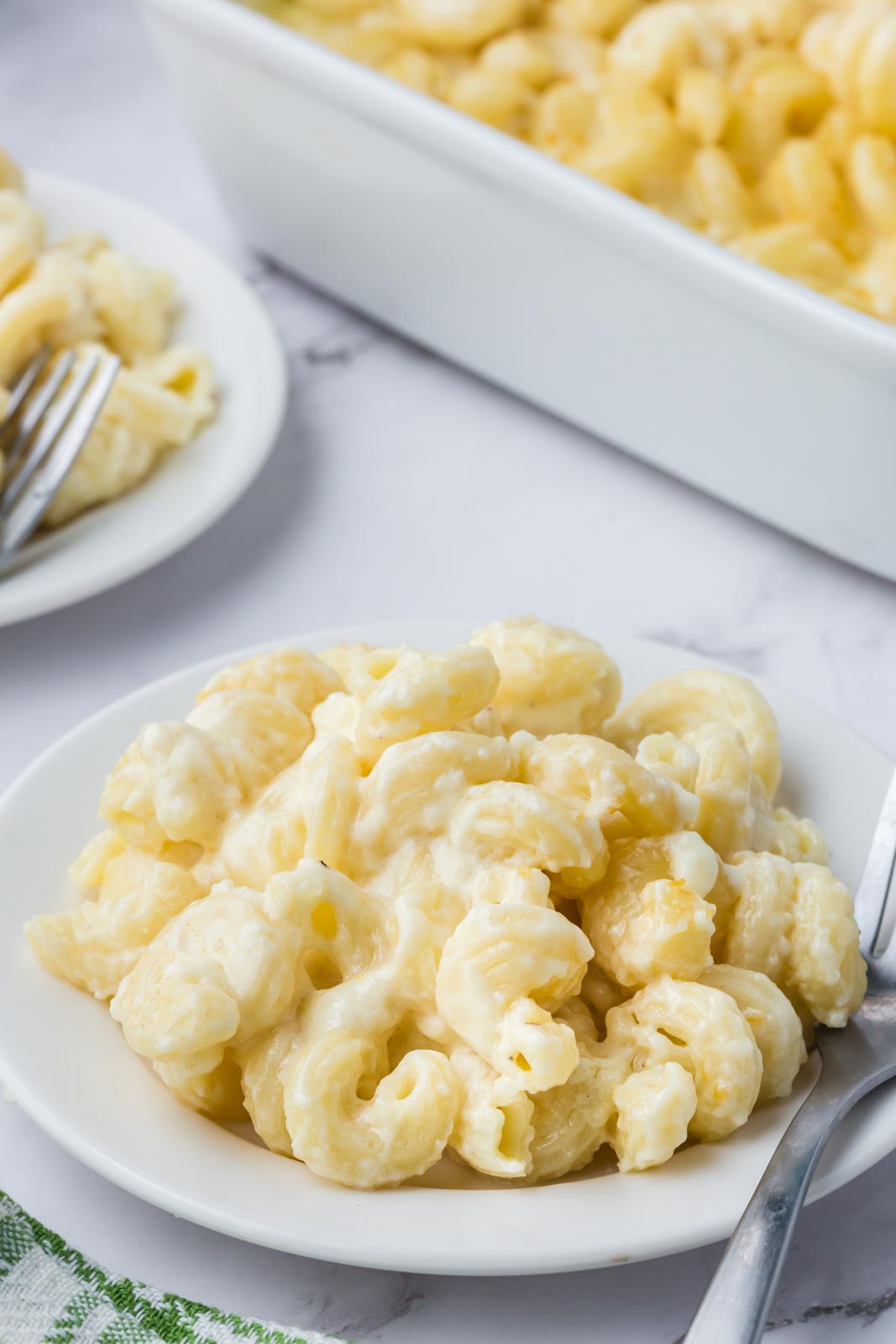
How to reheat baked white mac and cheese
This mac and cheese reheats quite nicely. Just stir in a little milk (about 1 tablespoon per cup of mac and cheese), cover with parchment paper and aluminum foil (or just foil if you are okay with it), and bake at 350 degrees F for 20 minutes or until heated through.
You can also reheat mac and cheese in the microwave. Transfer the desired portion to a microwave-safe dish and microwave on high in 30-second intervals, stirring between each, until heated through.
What to serve with baked mac and cheese
To balance the carbs in this dish serve up some great vegetables and proteins. Try one of these:
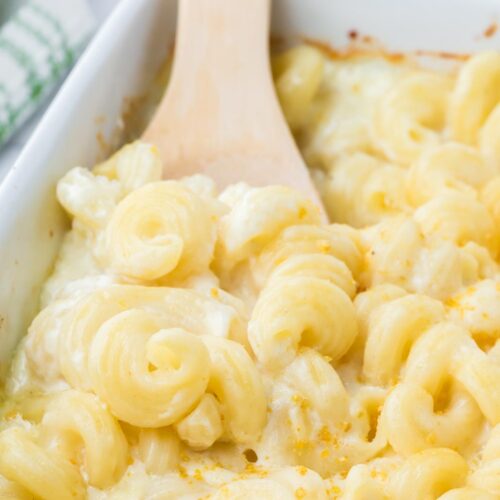
Baked White Mac and Cheese
Ingredients
- 1 1/2 cups elbow macaroni measured dry then cooked
- 3 tablespoons butter
- 2 cloves garlic minced (roughly 1 1/2 teaspoons)
- 3 tablespoons all-purpose flour
- 1 cup cream
- 1 cup milk
- 1/2 teaspoon salt
- 1/4 teaspoons black pepper
- 1 cup grated parmesan
- 1 cup grated white cheddar
Instructions
Boil the pasta
- Preheat the oven to 400 degrees F if you are baking your mac and cheese.
- Bring a large pot (about 3 quarts) of water to a boil and add 1 tablespoon of salt.
- Add the pasta and set a timer for 2 minutes less than the box suggests. If it gives a range, use the shortest time. if it gets done before the sauce, just drain it and set it back in the pot until you need it.
Make the sauce
- Once the pasta is in, start the sauce.
- In a 12-inch skillet, melt the butter over medium-high heat. Add the garlic and saute for about 30 seconds.
- Add the flour and stir to cook out the raw flour flavor — about 1 minute.
- Add the cream and milk (warmed if possible) and stir to combine. Add 1/2 teaspoon salt and 1/4 teaspoon pepper and reduce the heat to medium-low.
- Cook until the sauce thickens, stirring constantly, and is thick enough to coat the back of a spoon — about 5-6 minutes.
- Turn off the heat and add the cheeses. Stir until the cheese melts. Add the pasta and stir to combine.
Bake the mac and cheese
- Transfer the mac and cheese to a greased 9×13 baking dish or bake it in an oven-safe skillet. Bake for 20-25 minutes on the center rack.
- If you want to broil the top, preheat the broiler and broil (about 5 inches from the element/flame) until golden brown and bubbly. Keep an eye on it so you don't burn it!
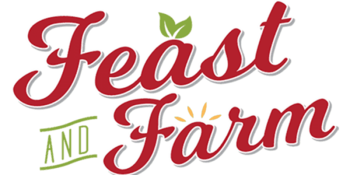
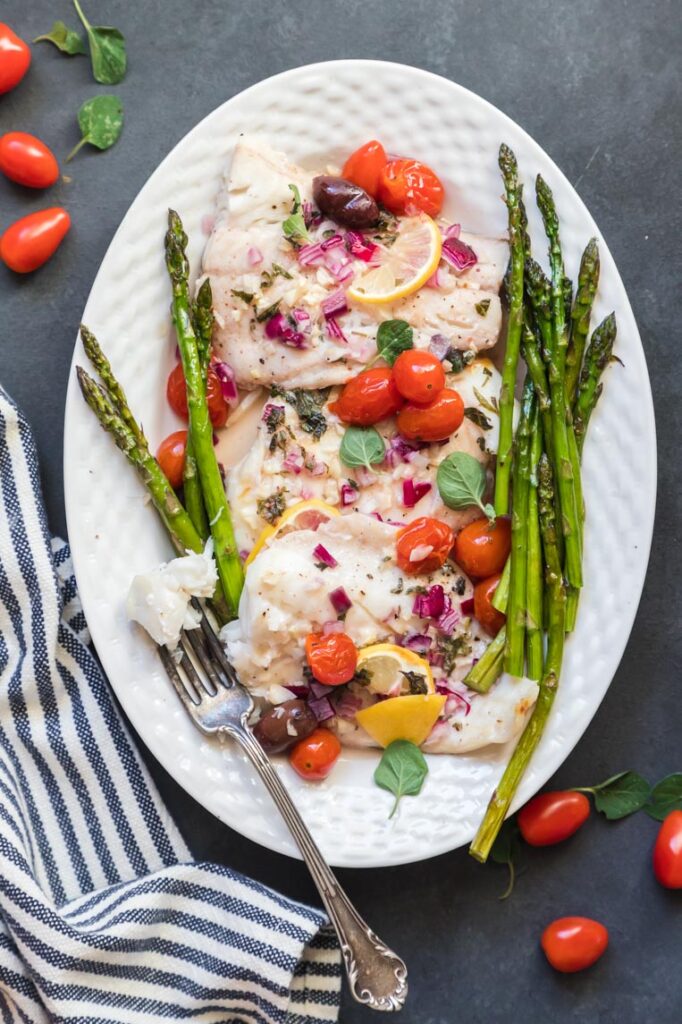
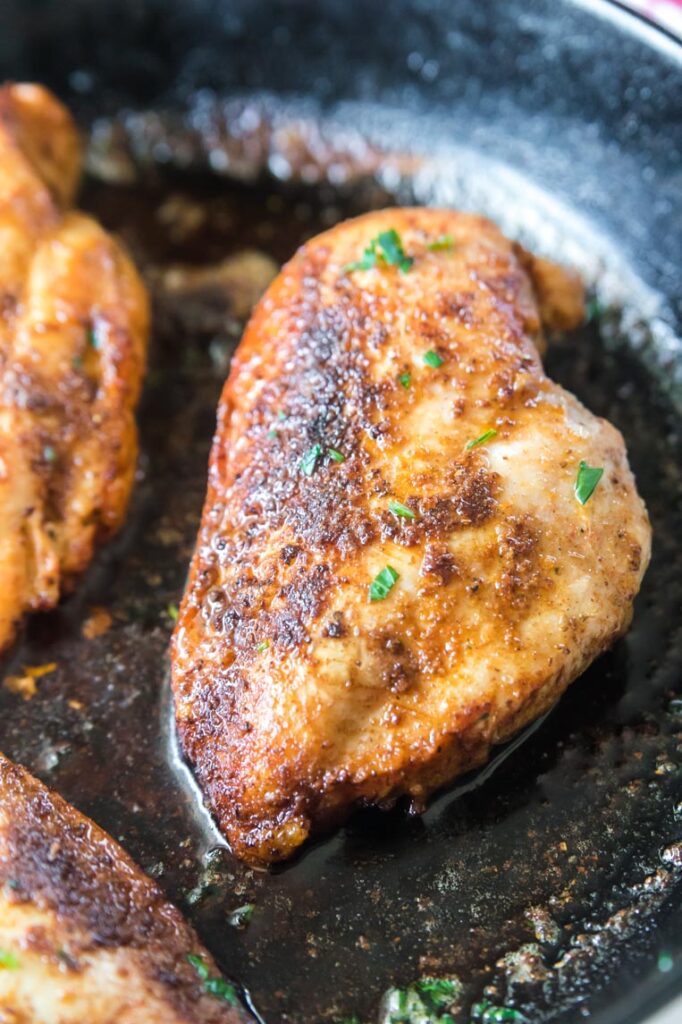
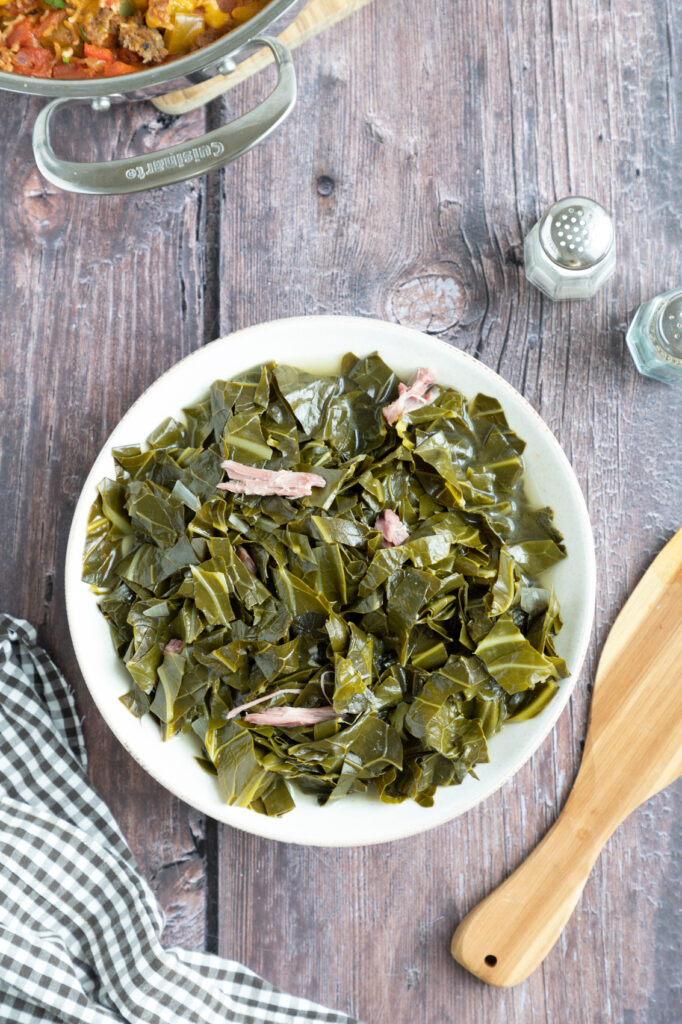
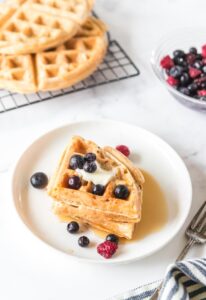
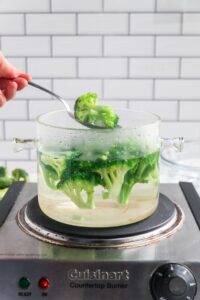
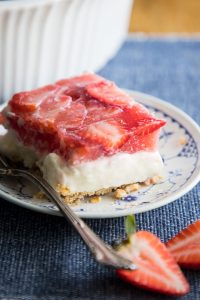
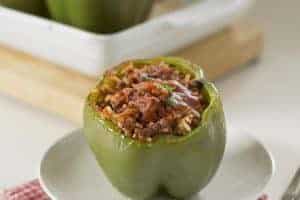
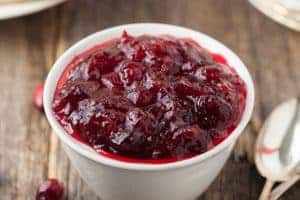
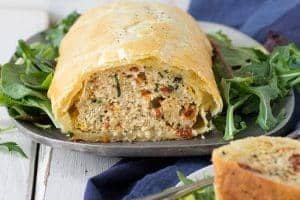
About the Author
Rachel Ballard, RN, BSN brings more than 20 years of professional nursing expertise to Feast and Farm. With a love for nutrient dense foods that support wellness, she works to distill complex health information and current trends into recipes that fuel the best version of yourself. Read more about Rachel here.